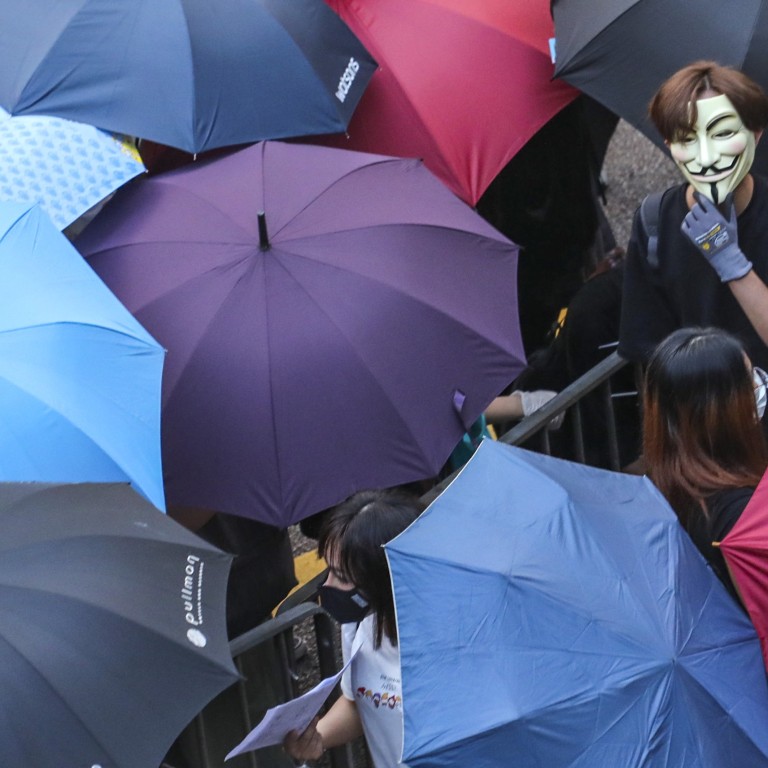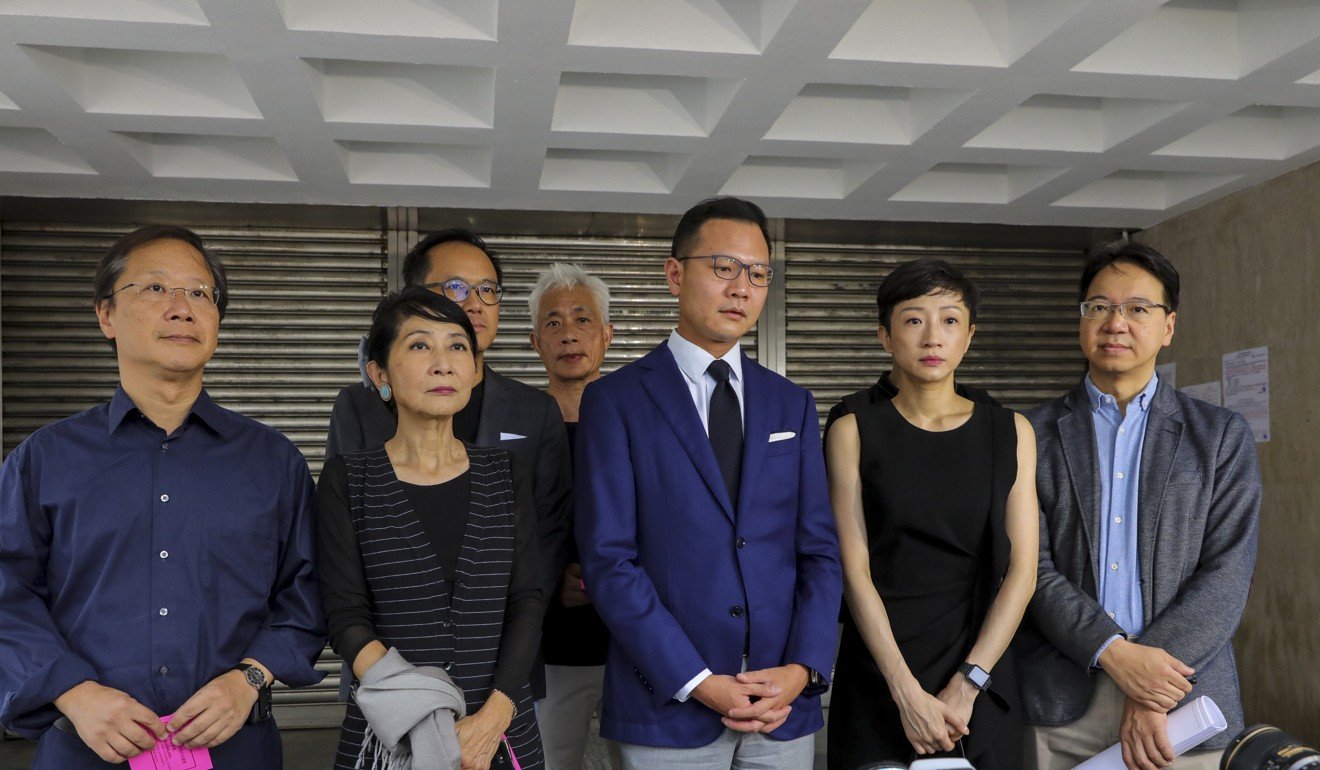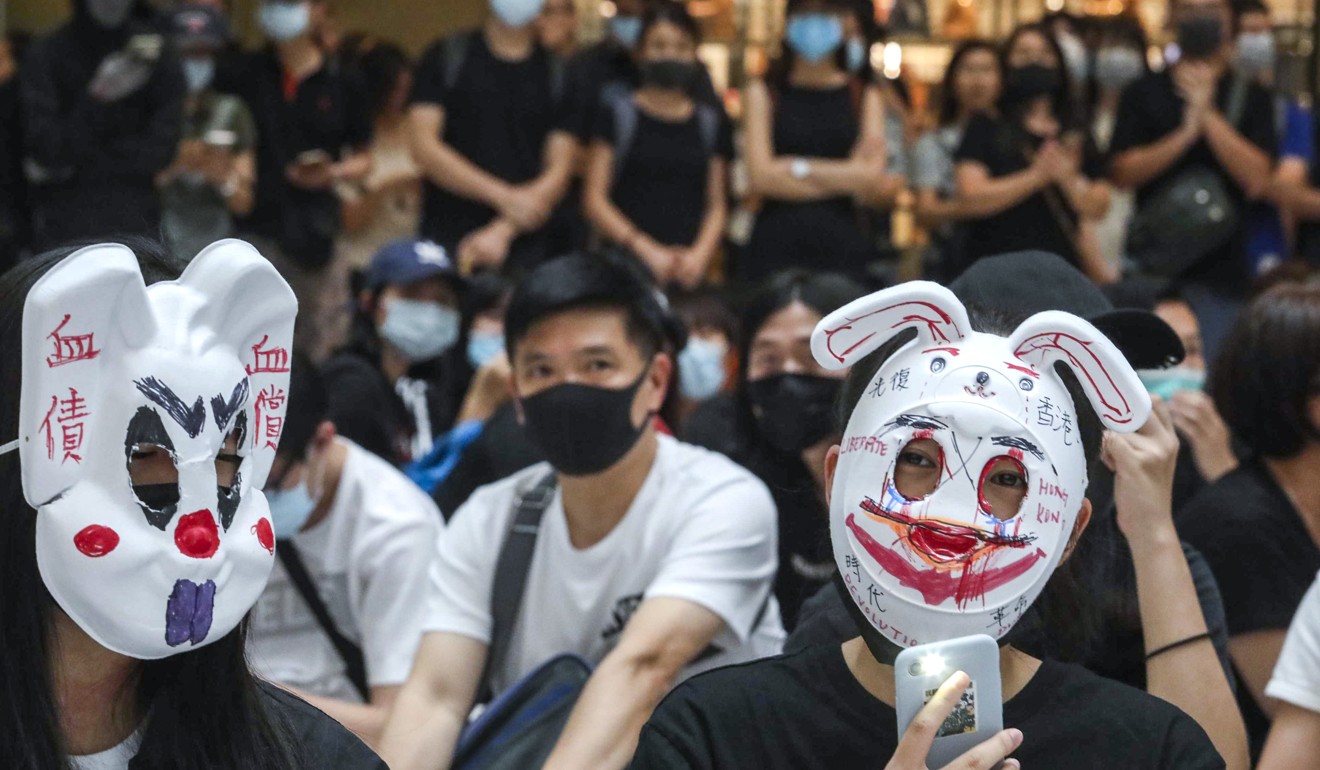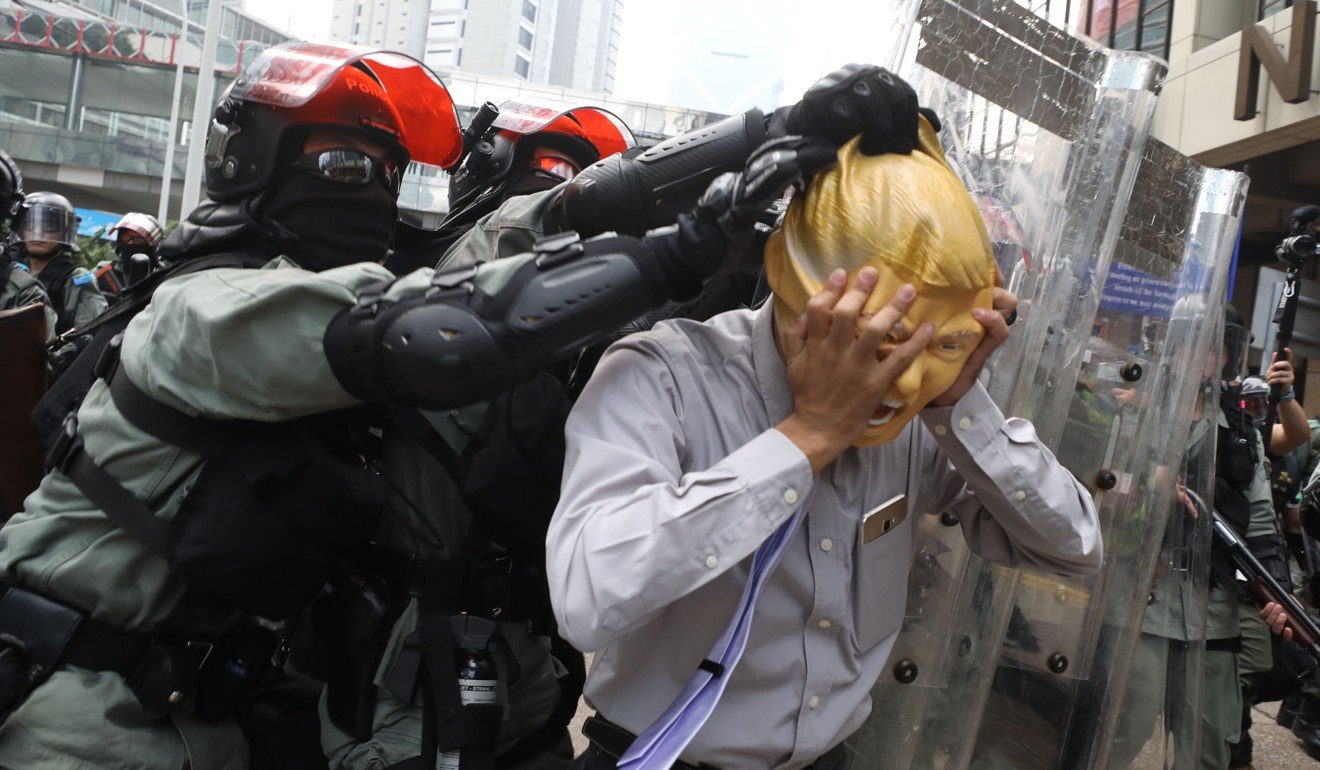
In rare, ‘significant’ move, Hong Kong judiciary appoints two judges to hear legal challenges against anti-mask law
- This has never happened in recent years, even in high-profile cases centred on constitutional matters
- Since anti-mask law came into force two weeks ago, six legal challenges against it have been lodged
In a rare move, Hong Kong’s judiciary has appointed two judges to hear legal challenges against the government’s use of colonial-era emergency laws to quell the ongoing protest crisis, according to sources.
Since the anti-mask legislation came into force two weeks ago, banning people from wearing masks at illegal and authorised rallies, six judicial challenges have been lodged – five from pro-democracy activists and one from legislators.
The Post was told that two judges, Godfrey Lam Wan-ho and Anderson Chow Ka-ming, were appointed to deal with two of the legal bids at the Court of First Instance, to be heard on October 31 in a two-day proceeding.
At least 77 arrested over anti-mask law, police observe ‘sharp escalation in vandalism’
Although the two-judge arrangement is not unprecedented, it is rare, according to legal experts. It has not been used in recent years, even in high-profile constitutional cases. The decision to pair judges reflected the significance of the pending challenges, the sources said.

“This is an arrangement made by the court and it showed how important the matter is,” pro-democracy lawmaker Dennis Kwok, who led other legislators in filing one of cases, said. Kwok, a barrister, represents the legal functional constituency.
Ronny Tong Ka-wah SC, a member of the government’s top advisory body the Executive Council, said the two-judge bench was known as a “divisional court”, usually called for important cases.
“From my recollection, it is rather rare since the [city’s return to Chinese rule in 1997],” he said.
Law lecturer Eric Cheung Tat-ming from the University of Hong Kong said the notion behind it was that with more judges, the court could rely on collective intelligence.
“It is like the Court of Appeal or Court of Final Appeal. They always have more than one judge,” he said.
Citing past cases, Cheung said it was rare for the two judges would end up contradicting each other, but if that occurred, a third judge would be called in.

Hong Kong is embroiled in more than four months of anti-government protests, sparked by the now-withdrawn extradition bill. Amid escalating violence between protesters and police, as well as mob vandalism against MTR stations, shops and banks, the government, citing “public danger”, invoked the Emergency Regulations Ordinance to implement the Prohibition On Face Covering Regulation. The controversial move sparked the legal challenges.
First suspects charged under anti-mask law granted bail
The two challenges the court will hear in two weeks include the case led by Kwok and 23 opposition lawmakers, who argued that the government’s move had usurped the legislature’s function to make laws, thereby violating the city’s mini-constitution, the Basic Law.
It will be heard in conjunction with the case filed by activist and ousted lawmaker “Long Hair” Leung Kwok-hung, who asserted that the move eroded citizens’ rights to assembly.

In recent years, the court has been made an arbitrator by private citizens and the government to resolve important constitutional matters.
Since 2014, the court has been asked by the government and election candidates numerous times to resolve disputes on qualifications. Six pro-democracy or independence lawmakers have been disqualified because of their invalid oaths, but the court also ruled in favour of some candidates who complained that they were deprived of the chance to run in elections.
Anti-mask law effectiveness in doubt. Now Hong Kong is on the brink...
Last year, the court ruled against a challenge to an immigration arrangement which allowed mainland Chinese laws to be applied to a section of the West Kowloon terminus of the high-speed rail link to Guangzhou.
All these cases were heard by one judge at the first-instance level.
In 2013, two judges were called in to hear the case of A, a convicted murderer who challenged the Long-term Prison Sentences Review Board for refusing to make a recommendation that his mandatory life sentence be turned into a determinate one. His application was dismissed.

